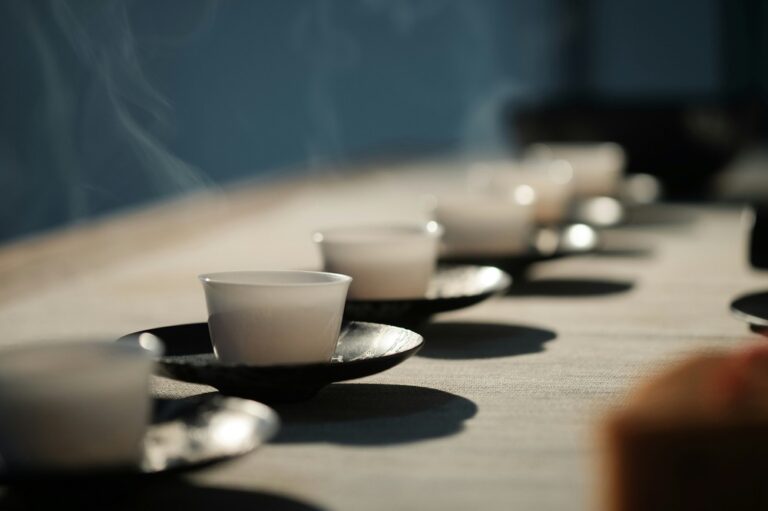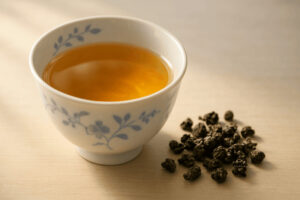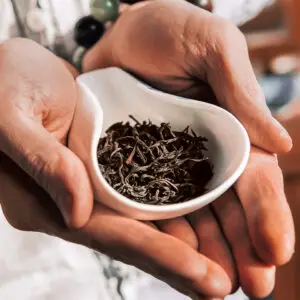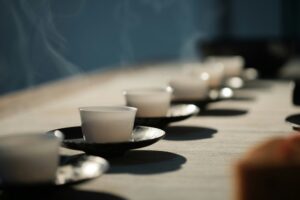Have you ever tasted a tea so exquisite that it transports you to a lush, misty mountain with each sip? From the very first sip to the last drop, Phoenix Mountain Oolong Tea – Dancong offers an extraordinary journey of taste and tradition.
This tea, a treasure from China’s Guangdong Province, originates from the serene Phoenix Mountain. As you inhale its enchanting aroma and let the smooth, fruity flavors dance on your tongue, you are not merely enjoying a beverage—you are experiencing a centuries-old tradition that has captured the hearts of tea lovers around the world.
The history of Phoenix Oolong tea (Dancong) can be traced back to the South-Song Dynasty, when it was first enjoyed by the emperor. However, it was during the Ming Dynasty that the tea gained widespread recognition, with the art of tea cultivation perfected over generations. This deep connection to Chinese history, combined with the tea’s complex flavor profiles, makes Phoenix Oolong tea (Dancong) a truly unique and sought-after tea.
A Legacy of Flavor: The Centuries-Old History of Phoenix Oolong (Dancong)
Phoenix Oolong Tea, also known as Dan Cong Oolong, has a rich history that dates back to the South-Song Dynasty. According to legend, an emperor was served this tea while passing through the Phoenix Mountain area and was captivated by its refreshing taste and unique fragrance. Since then, Phoenix Oolong has been meticulously cultivated in the region, becoming a tea of distinction for centuries. Azenbor is proud to continue this legacy, working with local farmers to preserve the traditions and quality that make this tea so special.
The tea’s excellence has been widely recognized through numerous awards:
- 1982: Recognized as one of China’s top teas
- 1986: First place winner at a prestigious tea competition in Fujian Province
- 1990: Earned the title of Nation Top Tea
- 1997: Received a special prize
If you come across tea labeled as “Song Cultivar Oolong” at a low price, be cautious. Most of these are counterfeit, as authentic Song Cultivar tea is incredibly rare and expensive. In fact, tea from the oldest trees is nearly impossible to buy due to its scarcity and value. Azenbor is committed to sourcing only authentic, high-quality Phoenix Oolong, working directly with trusted farmers to ensure its provenance.
What is “Dancong”?
The term “Dancong” (单枞) literally means “single bush.” It refers to the unique practice of harvesting tea leaves from individual tea bushes, each with its own distinct characteristics and flavor profile. This contrasts with mass-produced teas, where leaves from multiple bushes are blended together. Dancong teas are prized for their complexity and the unique sensory experience they offer. Azenbor specializes in sourcing exceptional Dancong teas, carefully selected for their individual character.
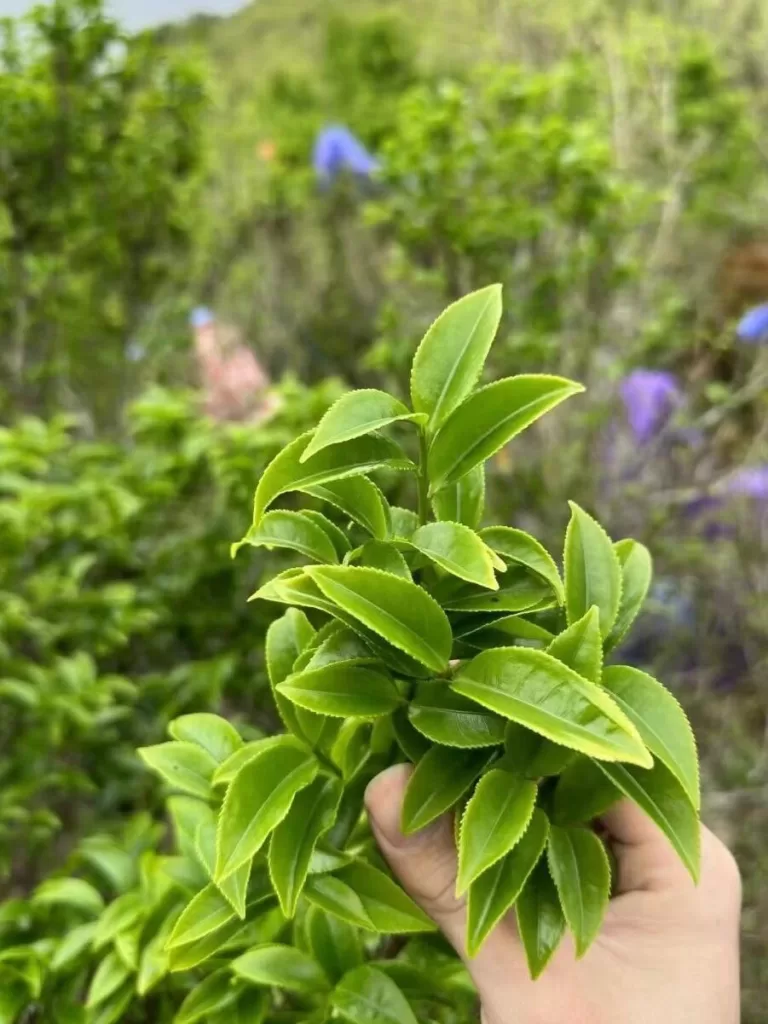
The Mountain’s Embrace: How Phoenix Mountain Shapes Azenbor’s Oolong
Phoenix Mountain, located in Chaozhou City, Guangdong Province, provides the ideal conditions for growing high-quality oolong tea. Situated at an elevation of 1,498 meters, this region benefits from a tropical climate, abundant waterfalls, and misty mornings, which create the perfect environment for cultivating tea. These natural factors contribute to Azenbor Phoenix Oolong Tea’s distinctive aroma and flavor, known for its floral and fruity notes.
Azenbor Phoenix Oolong tea is sourced directly from Chaozhou Phoenix Mountain farm. Our dedicated team of tea experts meticulously selects each leaf, ensuring that only the finest and most flavorful leaves make their way into our teas.
The Phoenix Mountain range is home to more than 50 peaks, each over 1,000 meters high. These peaks, coupled with the misty atmosphere, help ancient tea trees thrive. A recent survey revealed that the area hosts approximately 15,000 tea trees that are over 100 years old and around 3,800 trees that are over 200 years old. Among them, the most famous is the “Song Cultivar,” a tree over 600 years old. This tree is considered a national treasure, and its tea is among the rarest and most valuable in the world. Due to the scarcity of authentic Song Cultivar tea, it is both highly sought after and extremely expensive. Azenbor offers a ten selection of Phoenix Dancong Oolong teas, carefully sourced from local farm who are dedicated to preserving these ancient trees.
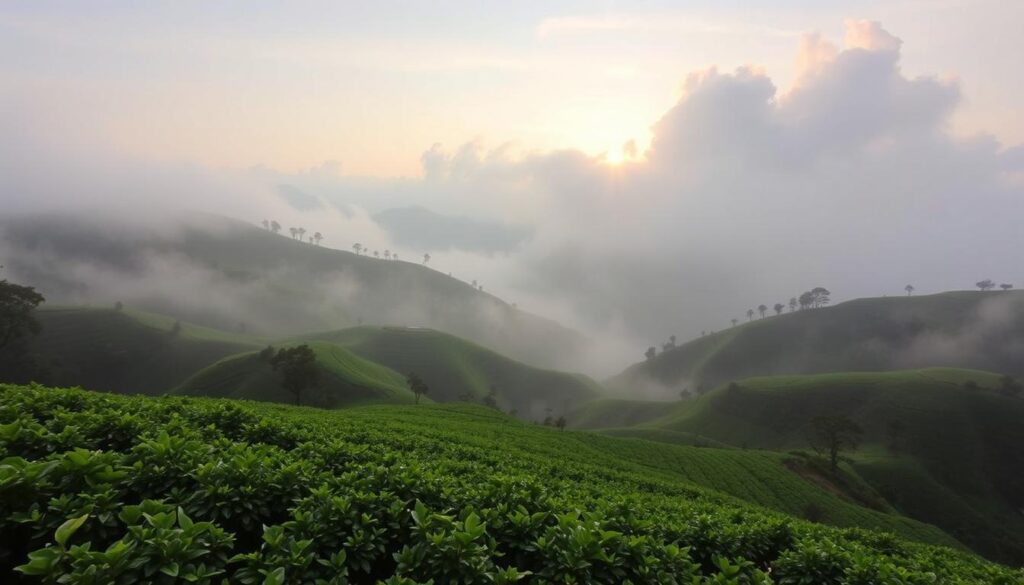
Experience the ‘Perfume of Tea’: The Captivating Aroma of Azenbor’s Phoenix Oolong
Phoenix Oolong Tea is celebrated for its exceptional fragrance, often referred to as the “perfume of tea.” This unique aromatic profile comes from the fact that each tea is harvested from a single tea bush, with each bush offering its own distinct scent and flavor. These range from delicate floral notes to rich fruity undertones. The oldest tea trees, some over 500 years old, contribute a remarkable depth and complexity to the tea’s flavor, making every batch truly one of a kind.
To experience the full spectrum of Phoenix Oolong aromas, explore Azenbor’s Ten Aroma Sampler. This collection allows you to discover the unique characteristics for the core 10 famous varieties.
A key characteristic of Phoenix Oolong tea (Dancong) is how its fragrance evolves during the brewing process. As the water temperature changes, so does the tea’s aroma. When brewed at higher temperatures, the tea reveals more intense, rich notes—floral, woody, depending on the specific cultivar. At lower temperatures, the lighter, fruitier elements emerge, allowing the drinker to experience a delicate balance of scent with each infusion.
One of the most engaging aspects of Phoenix Oolong is the diversity of aromas at different stages of brewing. When you first lift the lid of the teapot or gaiwan after steeping, a burst of concentrated fragrance escapes, giving you a first impression of the tea’s aromatic complexity. This initial “lid fragrance” often showcases the tea’s most vibrant notes, such as orchid, citrus, or peach, drawing tea drinkers into a sensory journey even before the first sip.
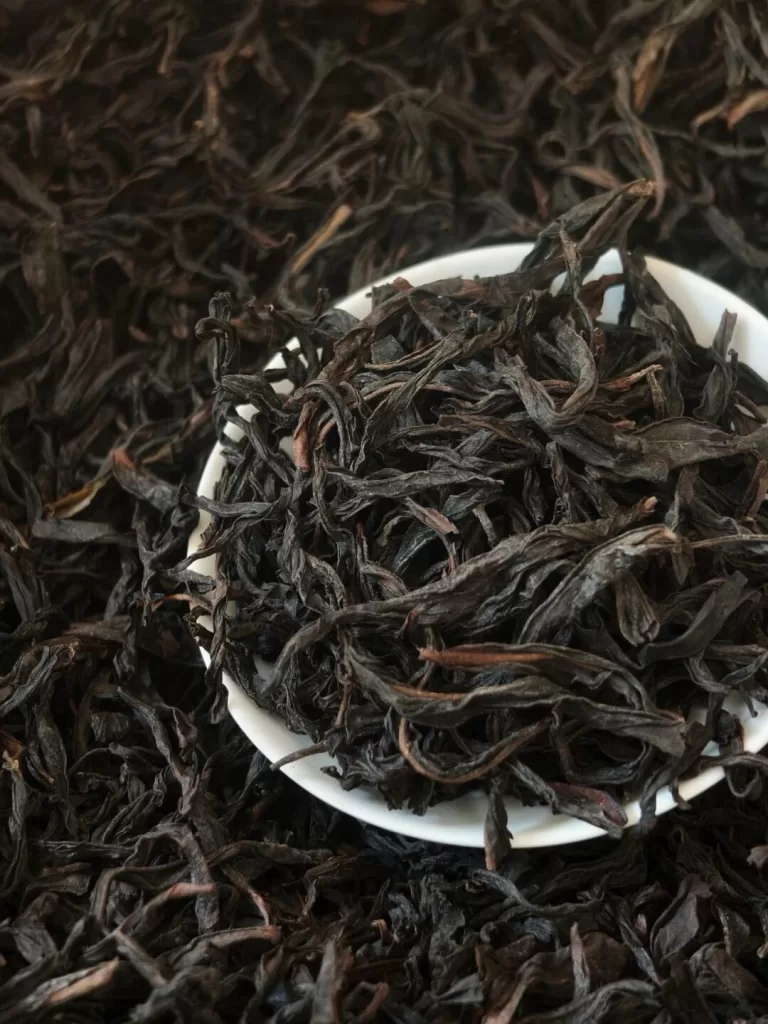
Moreover, the fragrance of Phoenix Oolong can be appreciated in both warm and cool leaves. When the leaves are warm, they exude more intense floral and fruity aromas. In contrast, as the tea cools, the aroma mellows, offering softer, more subtle scents—sometimes reminiscent of honey, wood, or herbs. Cold tea leaves, on the other hand, often carry an understated yet lingering fragrance that can surprise even seasoned tea drinkers, revealing nuances that were not immediately apparent during the initial steeping.
This variation is not just an accident of brewing—it’s a reflection of the tea’s rich chemical composition. The aromatic compounds, over 700 of which have been identified in tea, interact with water temperature and exposure to air during the brewing process. For instance, linalool, a key compound in Azenbor’s Phoenix Oolong, emits stronger floral aromas at higher temperatures, while cooler temperatures allow more delicate fruity aromas to shine. Geraniol, another compound, contributes to the tea’s sweet, honey-like notes.
The craftsmanship in processing also plays a crucial role in developing these dynamic fragrances. During the traditional “kill-green process” (杀青), where the leaves are heated to stop oxidation, many low-boiling-point compounds evaporate, leaving behind the more complex, long-lasting high-boiling-point compounds that define Phoenix Oolong’s deep and enduring aroma. However, even the cooling process after steeping brings out new layers of scent, making every cup a multi-sensory experience.
Tip:Fragrance Experience and Pairing
In the art of tea appreciation, where sensory experiences are highly valued, Azenbor Phoenix Oolong provides a distinctive experience. Imagine lifting the lid of your teapot and being greeted by an initial burst of orchid, peach, or grapefruit—each sip then revealing new layers of complexity as the tea cools and evolves. The dynamic nature of Phoenix Oolong makes it perfect for those who enjoy discovering how different brewing techniques and water temperatures can enhance or alter its fragrance.
For the best experience, try pairing this tea with light desserts like fruit tarts or almond cookies, which complement the tea’s floral and fruity notes. Alternatively, for a more robust tea with roasted or woody aromas, consider enjoying it with toasted nuts or aged cheeses to bring out the deeper, more savory aspects of the tea.
Beyond Taste: The Wellness Benefits of Phoenix Oolong Tea (Dancong)
The Phoenix Oolong tea (Dancong) is a special type of semi-oxidized tea, and Azenbor is proud to offer this exquisite tea that is loved for its unique taste and health benefits. It comes from the rich soils of Fenghuang Mountain in Guangdong. This tea combines old tea-making traditions with today’s health focus.
Its health benefits come from lots of tea polyphenols. These include catechins (a type of antioxidant) like gallocatechin and EGCG (epigallocatechin gallate). Studies show these antioxidants help fight oxidative stress. Oxidative stress is an imbalance in the body that can lead to cell damage and various health problems.
- Catechins: Effective in reducing oxidative stress by scavenging harmful free radicals [1]. Free radicals are unstable molecules that can damage cells.
- Polyphenols: Help in managing inflammation and bolstering the body’s disease-fighting capabilities [2].
The semi-oxidation process of Phoenix Oolong tea (Dancong) makes it even more special. It keeps the tea’s health benefits while adding to its aroma. This process balances green and black tea qualities, adding to its health benefits.
The tea is grown and picked in autumn. This ensures the leaves are full of nutrients. It’s packed with minerals and vitamins like magnesium, potassium, and vitamins A, C, and E. These help with bone health, digestion, and skin.
Drinking Phoenix Oolong tea (Dancong) daily can boost your health. It’s great for lowering cholesterol, managing weight, or just enjoying a tasty cup. It’s a mix of flavor and wellness.
The Art of Brewing Phoenix Dan Cong Oolong Tea
Starting your journey with Azenbor Phoenix Oolong preparation is like diving into an ancient art. It’s not just about steeping leaves. It’s about honoring the tea’s rich history and unlocking its complex flavors. Using tools like the gaiwan (a traditional Chinese lidded bowl) or Yixing pot (a porous clay teapot) lets you fully enjoy Azenbor Phoenix Oolong tea (Dancong)’s sophisticated taste.
The Gongfu brewing method is key for those who want to dive deep into this tea. Here’s how to use these traditional tools to improve your tea experience:
- The gaiwan is great for controlling the infusion. It helps manage water temperature and infusion time, keeping the tea’s flavors delicate.
- The Yixing pot is made from porous clay. It enhances the tea’s flavor by absorbing tea oils. Over time, it gets better, making each brew richer.
Start by heating water to exactly 212°F. The water tempreture from 194°F to 212°F is perfect for bringing out Phoenix Oolong Tea (Dancong)’s full flavor. Begin with a brief rinse to clean and awaken the leaves. Then, do short infusions, gradually increasing the time. This lets the leaves unfurl and release a range of flavors, from floral to fruity.
Each cup will show new layers of complexity. You’ll see the unique traits of high-mountain Dancong teas, like those from Wudongshan. The secret to mastering Phoenix Oolong preparation is patience and precision. Let each infusion slowly reveal the tea’s intricate profile.
By using these traditional methods, tea lovers can enjoy a rich journey through each brew of Phoenix Oolong tea (Dancong).
Try different brewing methods, like a gaiwan, Yixing teapot, or Western-style teapot. This can reveal new flavors and aromas. Mastering the art of brewing Phoenix Oolong tea lets you enjoy its smooth, sweet taste and fruity flavors without bitterness.
You can read our complete detailed guide for how to brew phoenix oolong tea.
What to Look For When Buying Azenbor Phoenix Oolong Tea (Dan Cong)
When picking a top-notch Phoenix Dan Cong oolong tea from Azenbor, look at a few key things. Real Phoenix Dan Cong oolong comes from old tea trees or bushes, not garden tea. This makes it taste unique and complex.
The place where the tea grows is very important. The Phoenix Mountains in Guangdong province have been growing Dancong oolong tea for over 600 years. Some trees are almost 900 years old. This, along with the special soil, makes the tea’s flavor and smell amazing.
How the tea is made is also key. Good Phoenix Dan Cong oolong is roasted a lot and oxidized well. This makes it taste strong and deep, lasting up to 30 minutes. The leaves are rolled into a special shape after roasting, adding to the tea’s unique taste.
When buying Azenbor Phoenix Dan Cong oolong, remember it’s rare and hard to find outside Phoenix Town. Look for tea from the right place, with old trees, and from a trusted producer. This way, you get the real taste and amazing flavors of authentic Azenbor Phoenix Dan Cong oolong tea.
Azenbor: Your Personal Sanctuary of Peace and Joy
Phoenix Oolong Tea represents the pinnacle of Chinese tea craftsmanship, combining centuries of tradition with exceptional natural conditions. Its complex fragrance profile, health benefits, and meticulous cultivation methods make it one of the world’s most prestigious teas.
At Azenbor, our dream is to transform your daily ritual – turning each cup into a moment of calm that elevates your mood and brings tranquility. We hope Azenbor becomes your personal sanctuary of peace and joy.
Whether you’re drawn to its rich history, unique flavors, or therapeutic properties, Azenbor Phoenix Oolong Tea offers an unparalleled tea experience that continues to captivate tea enthusiasts worldwide.
*Source:
[1]: ‘Catechins as antioxidants’, Journal of the American College of Nutrition, 2001 Dec;20(6):704-16. PMID: 11922668
[2]: ‘Effects of dietary polyphenols on chronic diseases’, Oxidative Medicine and Cellular Longevity, 2018 Jun 17;2018:6730625. doi: 10.1155/2018/6730625. eCollection 2018. PMID: 29988762
